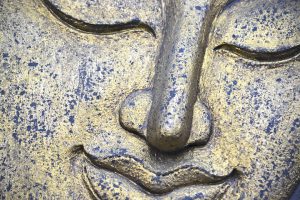Sunday
Opinion PiecesThe Liberation of Lowered Expectations
by Larry Barnett
 One reason I sometimes feel dissatisfied with life is that my expectations are too high. In fact, this is the primary reason. I expect, for example, that candidates for President of the United States will have been taught good manners like politeness and not interrupting or calling others names, things like that. And I expect that voters will be informed, thoughtful and use reason in their consideration of who’s best to serve in office. Like I said, my expectations are set too high.
One reason I sometimes feel dissatisfied with life is that my expectations are too high. In fact, this is the primary reason. I expect, for example, that candidates for President of the United States will have been taught good manners like politeness and not interrupting or calling others names, things like that. And I expect that voters will be informed, thoughtful and use reason in their consideration of who’s best to serve in office. Like I said, my expectations are set too high.
Disappointment comes easily to all of us, and not just due to politics. Disappointment is always just around the corner; my hamburger disappoints me, and the fries are too soggy. My router keeps losing its connection to the Internet. The newspaper delivery was late. My wife has lost her keys, again. My kids don’t call to say “hello.” Like Gilda Radner as Rosanne Rosannadana on Saturday Night Live used to complain, “it’s always something.”
The Buddha is famous for identifying life as suffering. He wasn’t kvetching like some Borscht Belt comic about his mother-in-law when he said this, by the way, he was simply talking about the logical outcome of high expectations. It’s worth noting that in India 2,500 years ago, high expectations were pretty low, compared with today. Crispy fries were not on the list. A small bowl of boiled rice everyday; now that was a high expectation.
 Anyway, his point was well made. With high expectations comes disappointment. In fact, any expectation risks disappointment, which really was his point, because he was saying that desire of any type is the root of suffering. He considered this a universal truth of being human because all human beings have desires. From desires arise expectations, and from expectations arise a sense of entitlement. By the time we get to the entitlement phase, well, suffering is inevitable.
Anyway, his point was well made. With high expectations comes disappointment. In fact, any expectation risks disappointment, which really was his point, because he was saying that desire of any type is the root of suffering. He considered this a universal truth of being human because all human beings have desires. From desires arise expectations, and from expectations arise a sense of entitlement. By the time we get to the entitlement phase, well, suffering is inevitable.
Viewed scientifically, desire is the natural outcome of pattern recognition; human brains are wired to find and predict patterns. A blackberry bush that had nice plump berries last year should have nice plump berries this year, and every year. When that doesn’t happen, if the bush withers and dies or the birds get to the berries first, our desires are not met and we’re disappointed. Same deal with the French fries; I like them crispy and if I ask for them that way I’m disappointed if they’re soggy. We use words and language to convey the way we want life’s patterns to be.
 Now the Buddha prescribed a solution to end suffering, which he called the Four Noble Truths. The first is to accept that because we desire, we suffer; suffering is not always the fault of somebody else, not even your mother-in-law, and recognition of the root of suffering is where ending it begins. He then goes on to describe a three-point plan, followed by an Eightfold Path. Good stuff, but rather all-consuming. Suffice to say, it leaves little time for watching baseball on TV.
Now the Buddha prescribed a solution to end suffering, which he called the Four Noble Truths. The first is to accept that because we desire, we suffer; suffering is not always the fault of somebody else, not even your mother-in-law, and recognition of the root of suffering is where ending it begins. He then goes on to describe a three-point plan, followed by an Eightfold Path. Good stuff, but rather all-consuming. Suffice to say, it leaves little time for watching baseball on TV.
I’m no Buddha, so the plan I’m using and recommend is far less ambitious. I’m proposing the Liberation of Lowered Expectations – the elimination of entitlement – actually; entitlement leads down a rat-hole to the worst feelings and behavior towards ourselves and others.
The Liberation of Lowered Expectations acknowledges desire and will not eliminate all suffering, admittedly. It does, however, leave time for watching baseball.






Sep 2, 2018
Reply
As another old student of Trungpa’s, I thought this was great. In my memory, abandoning expectations was actually central. I recall Trungpa talking about the value of desire, the path of desire. No hope, no fear is another angle, but for me a more difficult approach. Discovering an expectation only when it is disappointed has been a key part of my path. To be more aware in advance, to diminish my expectation of having my bits of knowledge listened to, decreases my suffering, but also can bring me more humbleness (is it different from humility?). It requires as well, lessening my fear of emptiness.
Aug 24, 2018
Reply
Trungpa R. uplifted us, transforming hippies into business men and women, teachers, doctors…Lowering expectations discounts dignity, natural dignity and decency. Shambhala buddhists are trained and encouraged to manifest that decency and dignity (albeit w/ mixed results) but the whole pt of raising lungta is not to become a couch potato on the sofa watching 9 innings of baseball. Perhaps don’t expect from other, but do raise lungta and post meditation get out and help this world, your environment, your neighbourhood.